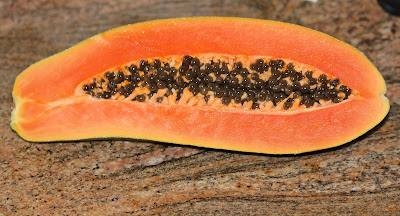Inflammation is a natural response by the body to protect and heal itself from injury, infection, or other harmful stimuli. It involves the immune system releasing chemicals that help to increase blood flow to the affected area, promote the delivery of immune cells, and initiate the healing process. While acute inflammation is a necessary and beneficial response, chronic inflammation can be harmful and contribute to various health conditions.
Certain foods possess anti-inflammatory properties and can help counter inflammation in the body. Here are some common examples:
Fatty fish: Fish like salmon, mackerel, sardines, and trout are rich in omega-3 fatty acids, which have been shown to reduce inflammation in the body.
Fruits and vegetables: Berries (such as strawberries, blueberries, and cherries), leafy greens (like spinach and kale), oranges, tomatoes, and other colorful fruits and vegetables contain antioxidants and other compounds that have anti-inflammatory effects.
Nuts and seeds: Almonds, walnuts, flaxseeds, and chia seeds are examples of foods that contain healthy fats and antioxidants, which can help reduce inflammation.
Whole grains: Foods like brown rice, quinoa, and whole wheat bread are rich in fiber and can have anti-inflammatory effects.
Spices and herbs: Turmeric, ginger, garlic, cinnamon, and rosemary are examples of spices and herbs that possess anti-inflammatory properties.
These foods work in different ways to counter inflammation. They often contain antioxidants, which help neutralize harmful free radicals in the body that can contribute to inflammation. They may also contain phytonutrients and other compounds that inhibit inflammatory pathways or reduce the production of pro-inflammatory substances.
It's important to note that while these foods can have anti-inflammatory effects, they should be part of an overall balanced diet and healthy lifestyle. If you have chronic inflammation or a specific medical condition, it's advisable to consult with a healthcare professional or a registered dietitian for personalized guidance.
Fitness Health Weight Loss Guru
Fitness Health Weight Loss Guru - Advice On Fitness, Health, Lose Weight, Belly Fat Loss, Fit Abs Workouts, Fitness Gyms, Healthy Diets, Belly Fat Burning Foods, Back Pain Exercises And Energy To Look And Feel Younger.
Tuesday, May 16, 2023
How To Counter Inflammation With Common Foods
Monday, May 8, 2023
Regular Exercise Can Counteract Inflammation
Yes, regular exercise has been shown to counteract inflammation and prevent many chronic diseases. Inflammation is a natural response of the body to protect itself from infection, injury, or damage. However, chronic inflammation, which can be caused by a variety of factors including a sedentary lifestyle, can lead to many diseases such as heart disease, diabetes, and cancer.
Regular exercise can reduce chronic inflammation by lowering the levels of inflammatory markers in the blood such as C-reactive protein (CRP), interleukin-6 (IL-6), and tumor necrosis factor-alpha (TNF-alpha). Exercise also increases the production of anti-inflammatory cytokines, such as IL-10, which can help reduce inflammation.
In addition to reducing inflammation, regular exercise can also help prevent or manage a variety of other diseases, including cardiovascular disease, type 2 diabetes, obesity, and some types of cancer. Exercise can also improve mental health, cognitive function, and bone density.
It's important to note that the type, intensity, and duration of exercise needed to achieve these benefits can vary depending on an individual's health status, fitness level, and personal goals. It's always a good idea to consult with a healthcare professional before starting a new exercise program.
Thursday, April 27, 2023
Top 10 Fruits That Promote Insulin Sensitivity
Here are the Top 10 Fruits That Promote Insulin Sensitivity:
Berries: Berries such as strawberries, blueberries, raspberries, and blackberries are rich in antioxidants and fiber, which can help improve insulin sensitivity and reduce inflammation.
Apples: Apples are high in fiber and polyphenols, which can help regulate blood sugar levels and improve insulin sensitivity.
Pears: Pears are also high in fiber and polyphenols, making them a good fruit choice for improving insulin sensitivity.
Kiwi: Kiwi is a good source of vitamin C, which has been shown to improve insulin sensitivity.
Grapefruit: Grapefruit is low in calories and high in fiber, making it a good fruit choice for improving insulin sensitivity.
Oranges: Oranges are high in vitamin C and fiber, which can help regulate blood sugar levels and improve insulin sensitivity.
Cherries: Cherries are rich in anthocyanins, which have been shown to improve insulin sensitivity.
Plums: Plums are high in fiber and polyphenols, which can help regulate blood sugar levels and improve insulin sensitivity.
Guava: Guava is high in vitamin C and fiber, making it a good fruit choice for improving insulin sensitivity.
Papaya: Papaya is a good source of fiber and contains compounds that have been shown to improve insulin sensitivity.
It is important to note that while these fruits can help improve insulin sensitivity, it is also important to limit the intake of fruits high in sugar such as bananas, grapes, and mangoes, as they can raise blood sugar levels. A balanced and healthy diet that includes a variety of fruits and vegetables is the best way to maintain good health.



